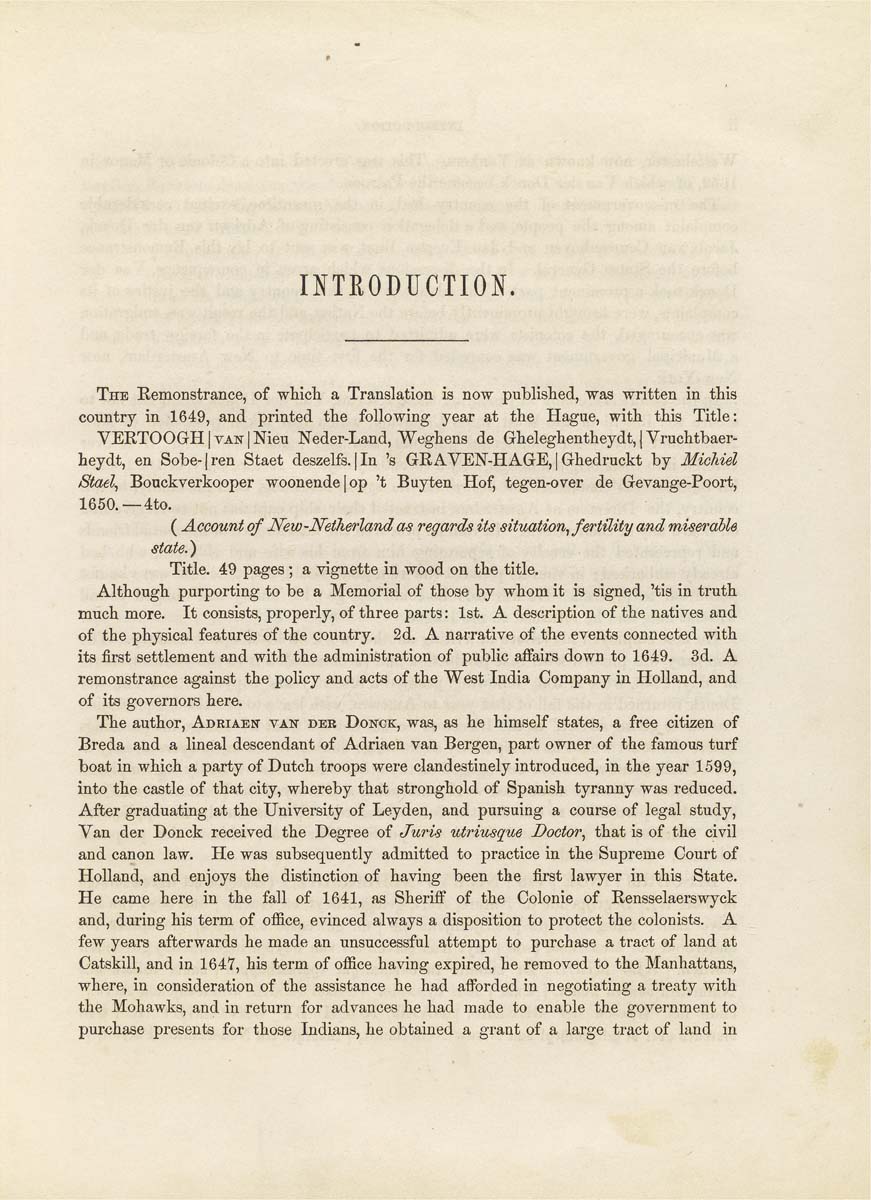INTRODUCTION.
The Remonstrance, of wliicli a Translation is now published, was written in this
country in 1649, and printed tlie following year at the Hague, with this Title:
VERTOOGHI VAN | Nieu Neder-Land, Weghens de Gheleghentheydt, | Vruchtbaer-
heydt, en Sobe-|ren Staet deszelfs.|In 's GRAVEN-HAGE, | Ghedruckt by MicUel
Stael^ Bouckverkooper woonende|op 't Buy ten Hof, tegen-over de Gevange-Poort,
1650. —4to.
( Account of NeW'Netkerland as regards its situation^ fertility and miserable
state.)
Title. 49 pages; a vignette in wood on the title.
Although purporting to be a Memorial of those by whom it is signed, 'tis in truth
much more. It consists, properly, of three parts: 1st. A description of the natives and
of the physical features of the country. 2d. A narrative of the events connected with
its first settlement and with the administration of public affairs down to 1649. 3d. A
remonstrance against the policy and acts of the West India Company in Holland, and
of its governors here.
The author, Adriaen van deb Donck, was, as he himself states, a free citizen of
Breda and a lineal descendant of Adriaen van Bergen, part owner of the famous turf
boat in which a party of Dutch troops were clandestinely introduced, in the year 1599,
into the castle of that city, whereby that stronghold of Spanish tyranny was reduced.
After graduating at the University of Leyden, and pursuing a course of legal study.
Van der Donck received the Degree of Juris utriusque Doctor^ that is of the civil
and canon law. He was subsequently admitted to practice in the Supreme Court of
Holland, and enjoys the distinction of having been the first lawyer in this State.
He came here in the fall of 1641, as Sheriff of the Colonic of Rensselaerswyck
and, during his term of office, evinced always a disposition to protect the colonists. A
few years afterwards he made an unsuccessful attempt to purchase a tract of land at
Catskill, and in 1647, his term of office having expired, he removed to the Manhattans,
where, in consideration of the assistance he had afforded in negotiating a treaty with
the Mohawks, and in return for advances he had made to enable the government to
purchase presents for those Indians, he obtained a grant of a large tract of land in
|








